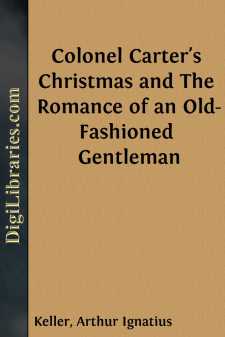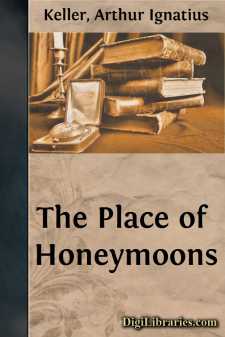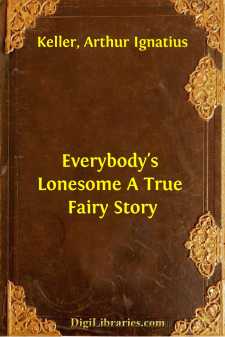Categories
- Antiques & Collectibles 13
- Architecture 36
- Art 48
- Bibles 22
- Biography & Autobiography 813
- Body, Mind & Spirit 142
- Business & Economics 28
- Children's Books 17
- Children's Fiction 14
- Computers 4
- Cooking 94
- Crafts & Hobbies 4
- Drama 346
- Education 46
- Family & Relationships 57
- Fiction 11829
- Games 19
- Gardening 17
- Health & Fitness 34
- History 1377
- House & Home 1
- Humor 147
- Juvenile Fiction 1873
- Juvenile Nonfiction 202
- Language Arts & Disciplines 88
- Law 16
- Literary Collections 686
- Literary Criticism 179
- Mathematics 13
- Medical 41
- Music 40
- Nature 179
- Non-Classifiable 1768
- Performing Arts 7
- Periodicals 1453
- Philosophy 64
- Photography 2
- Poetry 896
- Political Science 203
- Psychology 42
- Reference 154
- Religion 513
- Science 126
- Self-Help 84
- Social Science 81
- Sports & Recreation 34
- Study Aids 3
- Technology & Engineering 59
- Transportation 23
- Travel 463
- True Crime 29
Colonel Carter's Christmas and The Romance of an Old-Fashioned Gentleman
Categories:
Description:
Excerpt
To my Readers:
It will be remembered, doubtless, that the chronicles of my very dear friend, Colonel Carter (published some years ago), make mention of but one festival of importance—a dinner given at Carter Hall, near Cartersville, Virginia; the Colonel’s ancestral home. This dinner, as you already know, was to celebrate two important events—the sale to the English syndicate of the coal lands, the exclusive property of the Colonel’s beloved aunt, Miss Nancy Carter; and the instantaneous transfer by that generous woman of all the purchase money to the Colonel’s slender bank account: a transaction which, to quote his own words as he gallantly drank her health in acknowledgment of the gift, “enabled him to provide for one of the loveliest of her sex—she who graces our boa’d—and to enrich her declining days not only with all the comforts, but with many of the luxuries she was bawn to enjoy.”
Several other festivals, however, did take place: not in the days of the dear Colonel’s prosperity, nor yet at Carter Hall, but in his impecunious days in New York, while he was still living in the little house on Bedford Place within a stone’s throw of the tall clock-tower of Jefferson Market. This house, you will recall, sat back from the street behind a larger and more modern dwelling, its only outlet to the main thoroughfare being through a narrow, grewsome tunnel, lighted during the day by a half-moon sawed out in the swinging gate which marked its street entrance and illumined at night by a rusty lantern with dingy glass sides.
All reference to one of these festivals—a particular and most important festival—was omitted, much to my regret, from my published chronicles, owing to the express commands of the Colonel himself: commands issued not only out of consideration for the feelings of one of the participants—a man who had been challenged by him to mortal duel, and therefore his enemy—but because on that joyous occasion this same offender was his guest, and so protected by his hospitality.
This man was no less a person than the eminent financier, Mr. P. A. Klutchem, of Klutchem, Skinham & Co., who, you will remember, had in an open office and in the presence of many mutual friends, denounced in unmeasured terms the Cartersville & Warrentown Air Line Railroad—an enterprise to which the Virginian had lent his name and which, with the help of his friend Mr. Fitzpatrick, he was then trying to finance. Not content with thus slandering the road itself, characterizing it as “beginning nowhere and ending nowhere,” Mr. Klutchem had even gone so far as to attack the good name of its securities, known as the “Garden Spot” Bonds, and to state boldly that he would not “give a yellow dog” for “enough of ’em to paper a church.” The Colonel’s immediate resentment of this insult; his prompt challenge to Mr. Klutchem to meet him in mortal duel; Mr. Klutchem’s refusal and the events which followed, are too well known to you to need further reference here....





